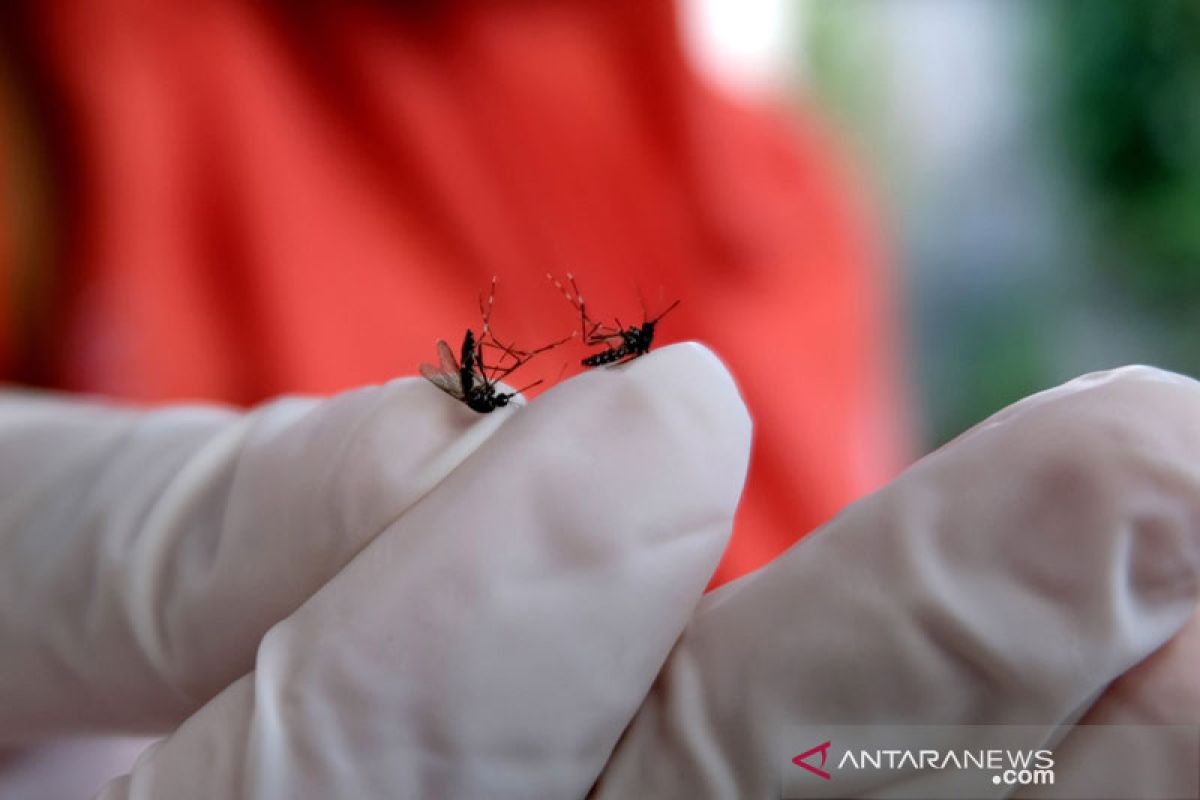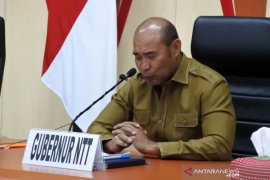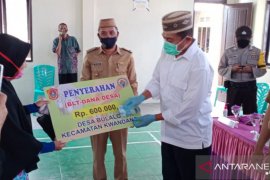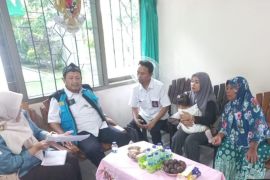In fact, in November 2018, the Health Ministry issued a circular letter to regional administrations across the country, calling for vigilance and anticipation for a possible outbreak of dengue, by eradicating the nests of Aedes aegypti mosquito, the main vector that transmits the viruses that cause dengue.
In addition, people are also advised to use mosquito repellent, use mosquito nets while sleeping, maintain mosquito larvae predators, plant mosquito repellent plants, regulate light and ventilation in the house, and avoid the habit of hanging clothes inside the house.
Despite the ministry`s warning and the public anticipation, however, at least 15,132 cases of dengue fever were reported throughout Indonesia, with 145 deaths, as of Feb 1, 2019, according to the Health Ministry.
East Java Province witnessed the highest number of dengue cases, at 3,074, with 52 deaths, Siti Nadia Tarmizi, the ministry`s director for vector-borne and zoonotic diseases, stated in early February 2019.
West Java ranked second, with 2,461 cases, causing 18 deaths; followed by East Nusa Tenggara (NTT), with 1,092 cases, resulting in 18 deaths; and North Sumatra, with 1,071 cases, leading to 13 deaths.
Besides, dengue fever also claimed at least four lives in West Nusa Tenggara, with over 400 cases, and two lives in Lampung, with more than one thousand cases.
The Health Ministry noted that dengue fever outbreak is relatively under control, with several areas starting to witness a decline in the number of cases.
"According to the latest data, Kapuas has started to come out of an extraordinary situation. The number of cases in West Manggarai has begun to decline, although one or two cases are still found. We must look at each region specifically. We still see a higher number of cases in East Java," Siti Tarmizi stated.
The number of dengue fever cases might further drop after the rainy season if the mosquito population declines.
The Health Ministry underscored the importance of intervention in controlling the population of Aedes aegypti mosquitoes carrying the dengue virus.
The ministry recorded 53,075 cases of dengue fever in 2018, some 68,407 cases in 2017, and 204,171 cases in 2016.
Most of those treated for dengue fever were children aged between 9 and 14 years, she remarked.
Meanwhile, the NTT government, particularly the East Sumba health office, has intensified efforts to prevent the spread of the mosquito-borne disease by reducing the population of the Aedes aegypti mosquito, Chrisnawan Try Haryantana, head of the East Sumba health office, stated recently.
In North Maluku, the number of dengue fever patients in the province reached 112 as of the end of January 2019.
However, no district in North Maluku declared extraordinary outbreaks of dengue fever due to a relative few number of patients, and there were no reports of deaths in those districts, Head of the Disease Control Section of the North Maluku Health Office Andi Sakrawati revealed.
The North Maluku Provincial Health Office has disseminated information to the public on some simple measures to prevent the spread of dengue fever, such as closing and cleaning all water containers, preventing the development of mosquito larvae, and keeping the environment clean.
The local health offices have also encouraged people to use mosquito nets while sleeping and to plant mosquito repellent plants, such as lavenders and lemongrass, around their houses.
In addition, people in North Maluku were provided some basic knowledge on the symptoms of dengue fever, including high fever lasting for days, pain behind the eyeballs, and red spots on the skin.
The health offices have urged people experiencing symptoms of dengue fever to immediately get intensive treatment at the nearest hospital or other health facilities.
In Papua Province, the Health Ministry has distributed 100 small packs of dengue rapid diagnostic test (RDT) instrument to dengue-affected districts and municipality in the easternmost Indonesian province of Papua.
"The Papua Health Service has distributed RDT instruments from the Health Ministry to eight districts and municipality in Papua since Saturday (Feb 9)," Chief of the Disease Prevention and Control of the Papua Health Service Dr Aaron Rumainum said in Jayapura, on Feb 11, 2019.
Rumainum noted that the instrument will be able to detect dengue fever. Each of the small packs contains 10 units of RDT.
The eight districts are Biak Numfor, Timika, Nabire, Merauke, Kota Jayapura, Boven Digoel, Asmat, and Sarmi.
"We call on the district health service office in each district to buy RDT if they run out of it," he added.
In the Indonesian capital city of Jakarta, the local administration has recorded 876 cases of dengue fever, but it has not been declared an extraordinary situation.
Governor Anies Baswedan has ordered all regional general hospitals (RSUDs) in the capital to treat dengue patients free of cost.
"All RSUDs must offer free treatment to dengue patients, and our RSUDs have good facilities," he said at RSUD in Pasar Minggu, South Jakarta, recently.
South Jakarta is among the five municipalities which has the highest number of dengue fever cases, he added.
"We will monitor the situation," Baswedan remarked.
Dengue is a mosquito-borne viral disease widely spread in tropical and subtropical regions. The disease is transmitted by Aedes mosquitoes, which breed in the peridomestic environment.
While most of the clinical cases present a febrile illness, severe forms including, hemorrhagic fevers and shock with fatalities, are reported.
Worldwide, tens of millions of dengue cases occur each year, resulting in approximately 20thousand to 25 thousand deaths mainly in children.
Personal protection measures to avoid mosquito bites should be applied when staying in risky areas by using repellents and wearing long-sleeved shirts and long pants, especially during the hours of highest mosquito activity,
Reporter: Fardah Assegaf
Editor: Azizah Fitriyanti
Copyright © ANTARA 2019












